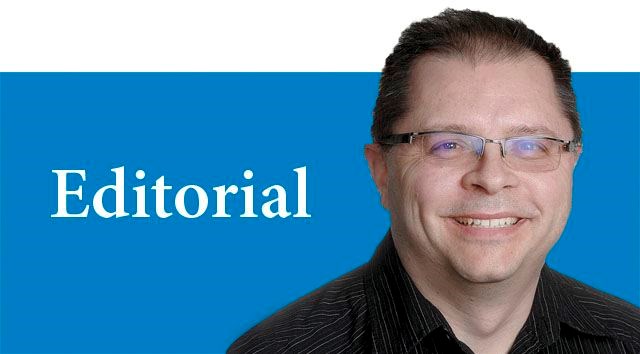As Don Henley sings, everything can change in a New York minute.
November in review: Prince George residents outside in T-shirts, Chicago Cubs win the World Series, a man who has never served in the military and never held public office in his life is the president-elect of the United States and soon to be commander-in-chief of the largest military in the world.
Donald Trump's victory was a shock to the pollsters and pundits, the professionals paid to gauge public sentiment, but not much of a surprise to many people who relied on more anecdotal evidence from recent trips south and chats with American friends.
As the man himself would say, this win is YUGE but local residents have seen this movie before.
Remember the 2013 provincial election, when Christy Clark and the B.C. Liberals were finished and the polls said an NDP majority under Adrian Dix was inevitable? Clark's victory was called an upset, even though many people outside of Vancouver and Victoria weren't too amazed by the extent of the Liberal victory.
Outside of New York and Washington, the same view seems evident.
Meanwhile, it's another rough hangover for the polling industry.
"Juuuussst a bit outside," as the radio play-by-play man said when Charlie Sheen's first pitch in Major League missed so bad it rolls all the way to the backstop.
In the aftermath, the pollsters are still talking about statistical modelling and sampling error, as if a few little tweaks will fix their mistakes. Like economists, they have constructed elegant mathematical formulas to explain logical human behaviour on a global scale, refusing to recognize what psychologists have always known. People are not always rational, they are terrible at making choices for their long-term benefit and they can easily find ways to justify contradictory beliefs.
And people across the political spectrum now routinely and deliberately mislead pollsters.
Furthermore, both pollsters and pundits (present company included) too often justify their analysis with identity politics and historical trends.
People are dumped into categories - male, female, white, black, Christian, Muslim, urban, rural, rich, poor - to assemble a sample population to measure and to identify trends. The theory of identity politics holds that those identities shape the worldview of individuals, that there's no denying who and what we are. Except that at the individual level, identities seem to be far more fluid.
Forty-two per cent of women voters backed Trump, as did 29 per cent of Hispanic voters and eight per cent of black voters, according to exit polls. Those are millions of voters who did not cast a ballot with either their skin colour or their gender in mind.
Voters also don't care much about history, as Clinton was no doubt dismayed to learn. She didn't step foot in Wisconsin during the election while Trump made several stops there. The state had voted Democrat in every election since 1988 so it's 10 electoral votes were safely in Clinton's back pocket, conventional wisdom said, and Trump was criticized, even by fellow Republicans, for wasting time in Wisconsin.
Oops.
Clearly, voters are far more fickle than observers give them credit for and many don't care how they voted last time when making today's choice.
Millions of Americans who supported Barack Obama in the two previous elections either stayed home or voted for Trump in 2016. Trump couldn't have won the election without them.
The inability of political watchers to imagine how people could make that leap in allegiance blinded them to the reality of it actually happening.
That inability to predict what's next alarms people on both sides of the border and on both sides of the political fence.
Trump, like the people who elected him to the White House, refuses to be bound by history, identity, tradition or party doctrine, faithful only to instinct and emotion.
"Things can get pretty strange in a New York minute" Henley sings.
During a Trump presidency, that's about the only certainty there is.
-- Managing editor Neil Godbout



